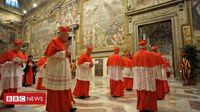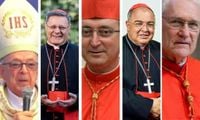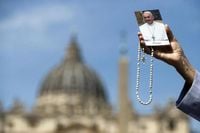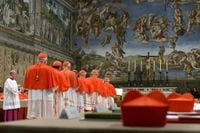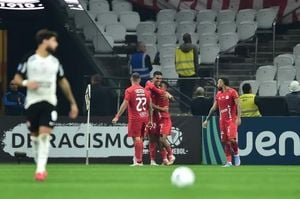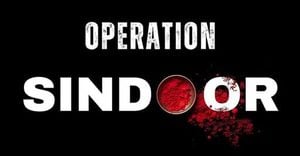The death of Pope Francis, aged 88, has set the stage for a conclave to elect a new leader of the Catholic Church. The period following a pontiff's death until a successor is chosen is known as Sé Vacante. Once declared, the governance of the Catholic Church falls to the College of Cardinals, and the conclave is expected to commence within 15 to 20 days after the pope's passing.
According to the rules outlined in the apostolic constitution "Universi Dominici Gregis," the conclave must start no sooner than 15 days and no later than 20 days after the pope's death. This means that the election of the next pope could begin as early as May 6, 2025. During this time, the electing cardinals will be isolated from the outside world, prohibited from any communication, including electronic messages or social media. This strict confidentiality is enforced to ensure the integrity of the election process.
Voting in the conclave involves nine cardinals, who are randomly selected and divided into three groups. Each cardinal takes an oath of secrecy, promising never to reveal what transpired during the conclave. The penalty for breaking this oath is excommunication. To elect a new pope, a candidate must receive a two-thirds majority of the votes from the participating cardinals.
Currently, there are 135 cardinals eligible to vote, among whom seven are Brazilian. These cardinals are Cardinal Odilo Pedro Scherer, Cardinal João Braz de Aviz, Cardinal Orani João Tempesta, Cardinal Sergio da Rocha, Cardinal Paulo Cezar Costa, Cardinal Leonardo Ulrich Steiner, and Cardinal Jaime Spengler. The eighth Brazilian cardinal, Raymundo Damasceno Assis, aged 88, is not eligible to vote due to age restrictions but will still participate in discussions during the vacancy period.
Cardinal Odilo Pedro Scherer, 75, serves as the archbishop of São Paulo and is a noted philosopher and theologian. He has previously been mentioned as a potential candidate for the papacy. Cardinal João Braz de Aviz, 77, is the archbishop emeritus of Brasília and has played a significant role in managing religious congregations worldwide. Cardinal Orani João Tempesta, 75, has been the archbishop of Rio de Janeiro since 2009. Cardinal Sergio da Rocha, 65, is the archbishop of Salvador and was appointed a cardinal in 2016. Cardinal Paulo Cezar Costa, 57, is the youngest among the Brazilian cardinals, serving as the archbishop of Brasília. Cardinal Leonardo Ulrich Steiner, 74, is the archbishop of Manaus, while Cardinal Jaime Spengler, 64, is the president of the National Conference of Bishops of Brazil and the archbishop of Porto Alegre.
The conclave will take place in the Sistine Chapel, where the cardinals will gather to cast their votes in secrecy. The process is steeped in tradition, with ballots burned after each voting session to produce either black or white smoke, signaling the outcome to the outside world. Black smoke indicates no decision has been made, while white smoke signifies the election of a new pope.
Once a candidate is elected, three cardinals will ask, "Do you accept your election as Supreme Pontiff?" Upon an affirmative response, they will inquire, "Quo nomine vis vocari?" or "What name do you wish to be called?" The newly elected pope will then don papal vestments in a room known as the "Sala delle Lacrime" or "Room of Tears," where many popes have been known to shed tears of humility and responsibility.
Following this, the new pope will appear on the balcony of St. Peter's Basilica, where he will be introduced to the public with the traditional proclamation, "Habemus Papam!" This moment marks the beginning of a new papacy, and the new leader will offer his first public blessing, known as the Urbi et Orbi, meaning "to the city and the world."
As preparations for the conclave unfold, the global Catholic community watches closely, eager to see who will emerge as the new spiritual leader of over a billion Catholics worldwide. The upcoming days will be filled with anticipation as cardinals engage in prayer and deliberation, guided by their faith and the Holy Spirit in their quest for a new pope.
